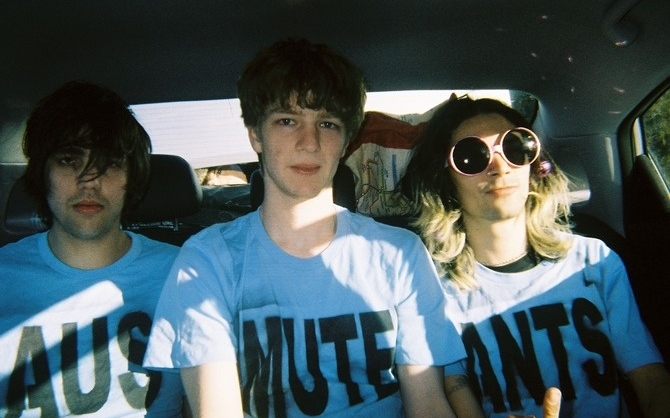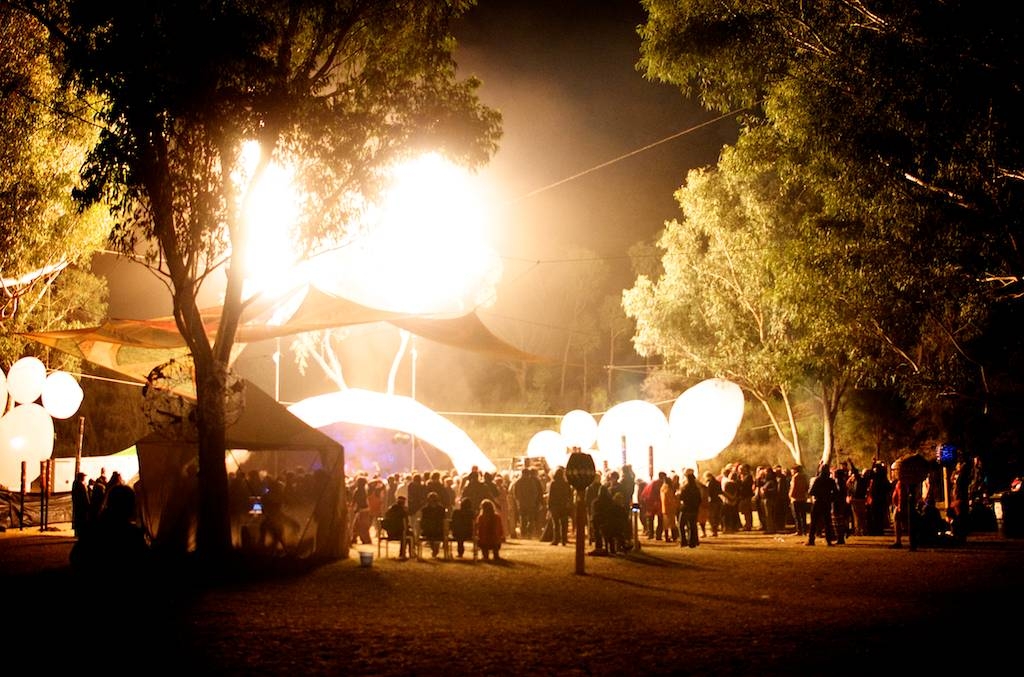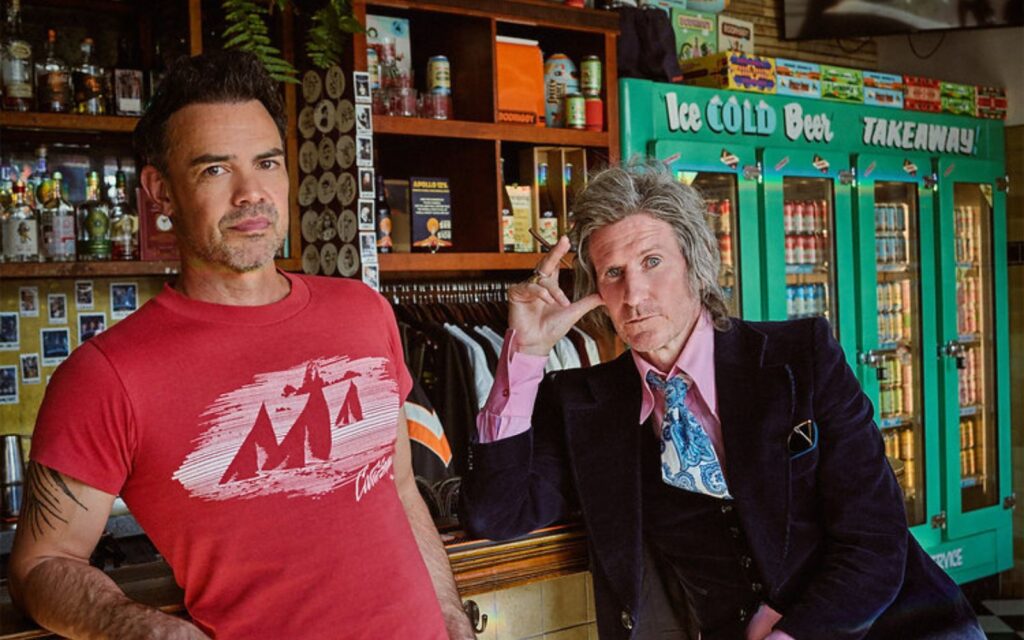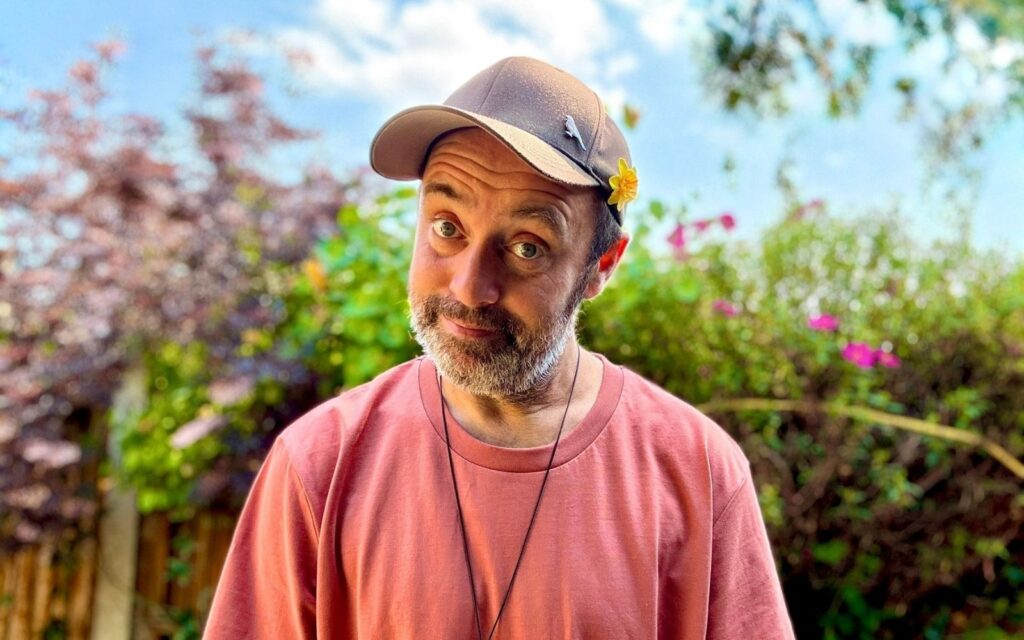“I felt bad because I never intended to put shit on Courtney’s Grammy sweeping music career,” says Ausmuteants guitarist Jake Robertson. “The worst criticism we received was that the parody was similar to something that The Bennies did. It made me want to quit music. We are not bong-guzzling, ska sympathisers and resent those who are.”
Ausmuteants formed in Geelong in 2009 when Robertson and Billy Gardner, both already members of Geelong’s vibrant garage rock scene, bonded over a mutual interest in The Music Machine and The Golden Dawn. “Billy had a made a Brian Jones-era Rolling Stones MySpace page when he had a broken leg,” Robertson says. “When we started it was just us two, then we got Marc [Dean] on bass. Marc loved post-punk stuff and then we got Shaun [Connor], and he loved hardcore and disco. I like all of that stuff.”
At the time Gardner’s principal band, The Living Eyes, were in the midst of a brief hiatus while their drummer recovered from repetitive strain injury, before Robertson filled the drum slot temporarily. Killing time before the rest of the band turned up for rehearsals, Gardner and Robertson began jamming on more aggressive songs, and the seeds of Ausmuteants were sown.
Early inspiration came from two fixtures of the 1970s San Francisco experimental punk scene, Chrome and Tuxedomoon. Eventually, Robertson says, “We started branching out as we started running out of things to plagiarise.”
For some bands and fans steeped in punk attitude, synthesisers are to punk rock as lamb cutlets are to Morrissey’s idea of a perfect culinary world. But synthesisers are embedded in punk rock’s evolutionary course. Consider the case of Devo, one of punk rock’s seminal reference points – or even locally, the Primitive Calculators and The Ears, both bands who made liberal and eclectic use of the synthesiser in a serious punk scene.
“There’s this comp called Messthetics, which has all the UK ’79 DIY bands,” Robertson says. “It has a song called Machine Gun by a band called The Rich & Famous. That was one of the first things I tried to write like in this band.”
Ausmuteants issued their debut release, the Split Personalities cassette, in 2012. Their debut LP, Amusements, followed in 2013, and the Order of Operation LP came in 2014. The cover of the latter features an office photocopier: “originally I wanted it to look like a car’s operation manual. Come in a blue vinyl cover and smell like air freshener. But it was too expensive,” Robertson says.
The opening song from Amusements, Bad Day might be seen to epitomise the band’s pissed off worldview: a bad day in a bad week, in a bad month, and a bad year to boot. But there’s no deep existentialist meaning here – it’s simply a reflection of the difficulty of the creative process.
“We just have trouble coming up with lyrics – those things are hard. Also if it’s one of the cranky songs, it’s usually singing from somebody else’s perspective or about an entire group as opposed to one person. I suppose I’m a ‘I have half of a drink left,’ kind of guy.”
As for songs like Freedom of Information and Depersonalisation from Order of Operation, there’s no Orwellian analysis happening here – unless, of course, masturbation is a metaphor for political insight. “Shaun wrote Freedom of Information, but I can safely say there is no political message in any of our songs. Outside of some petty social commentary – all of which is obvious and poorly written – Freedom of Information is about sometimes preferring a wank to intimate contact.”
Ausmuteants have garnered a positive reaction overseas, including a favourable review of Order of Operation from Pitchfork and an appearance at Gonerfest in 2014 (both the band’s albums have been released on Goner Records in the US). “American audiences don’t have the same gossip driven, sheep mentality towards us. They definitely do to other bands in their hometowns – at least I think that’s what it is. Otherwise Melbourne people just don’t like it when arseholes put melodies in fast music – which I don’t blame ‘em for.”
Robertson doesn’t think Ausmuteants are getting any more mature in their songwriting – if anything, they might be regressing – and Geelong is still as culturally invigorating as ever. “There’s not many bad things about Geelong,” Robertson says. “I love Geelong. I guess the worst thing is you need a car and sometimes walking home at night can be sketchy. But that’s the same anywhere.” And apparently even the city’s colourful mayor, Darren Lyons, is a fan of Ausmuteants. “Darren Lyons actually fronted us the money to record the first album because we all had mohawks. Darren is for da punx. Up da punx.”
BY PATRICK EMERY







